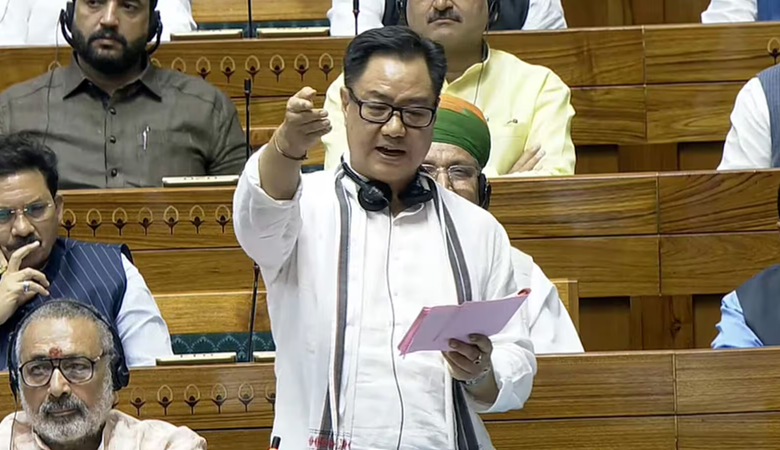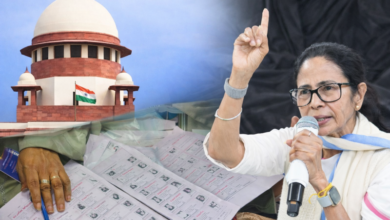Empowering Women, Children, and Backward Muslim Communities, Says Kiren Rijiju: Waqf Bill 2024

News Mania Desk/Agnibeena Ghosh/23rd August 2024
In response to the Opposition’s objections to the Waqf Amendment Bill 2024, Minority Affairs Minister Kiren Rijiju firmly defended the bill in the Lok Sabha. He assured that the bill does not violate any clause of the Indian Constitution, referencing a Supreme Court ruling which clarifies that the Waqf Board is not governed by Articles 25 and 26. Rijiju emphasized that the bill seeks to extend rights to those who have been historically deprived, rather than stripping away existing rights.
Rijiju highlighted that this is not the first time such a bill has been introduced. The original Waqf Act was enacted in 1954 and has seen numerous amendments over the years. The current amendments stem from provisions introduced in 2013, which Rijiju claims were left unaddressed by previous governments. He urged all members, particularly those from the Congress party, to support the bill, arguing that it aims to uplift common Muslims.
The Minister pointed to a 1976 Waqf Enquiry Report that revealed widespread control of Waqf Boards by mutawallis, or caretakers, and stressed the need for improved audit and account management. He also referenced the Sachar Committee, established by Congress, which reported that Waqf lands had the potential to generate significant revenue—up to ₹12,000 crore—but were only producing ₹162 crore at the time. The committee also recommended broadening the base of the Waqf Board and including women in the Central Waqf Council, an idea that Rijiju claims the current bill addresses.
Rijiju further quoted a Joint Parliamentary Committee (JPC) report, which criticized the inefficiency and mismanagement of Waqf Boards. The JPC recommended the computerization and centralization of Waqf data, a suggestion that has been incorporated into the bill. He expressed frustration with the opposition’s reluctance to acknowledge the positive changes the bill introduces, accusing them of being politically motivated.
During the discussion, Congress leader Rahul Gandhi walked out of the session, a move that Rijiju interpreted as tacit agreement with the bill, albeit influenced by political pressure to oppose it. Addressing concerns about the lack of broader consultations before the bill’s introduction, Rijiju countered that the bill actually enhances democratic processes by allowing tribunal decisions to be challenged in court.
Rijiju highlighted a controversial provision that previously allowed anyone to declare a property as Waqf, a rule that the amendment seeks to change by restricting this power to Muslims alone. He argued that this change is necessary to prevent abuses, such as the wrongful declaration of non-Waqf properties as Waqf, citing cases where such declarations led to disputes over temples and municipal properties.
The bill also addresses issues of illegal occupation of Waqf land, with Rijiju claiming that many state Waqf Boards have been taken over by mafias. He emphasized that the bill would ensure that the income generated from Waqf properties would be used for the welfare of the Muslim community, particularly women and backward classes. The inclusion of technology in Waqf Board operations and continuous oversight by the Minority Affairs Minister are also key provisions aimed at increasing transparency and accountability.
In conclusion, Rijiju framed the Waqf Amendment Bill 2024 as a crucial step toward empowering women, children, and backward Muslim communities, ensuring that the benefits of Waqf properties reach those who need them most. He called for support from all political parties to pass the bill and rectify historical injustices.






